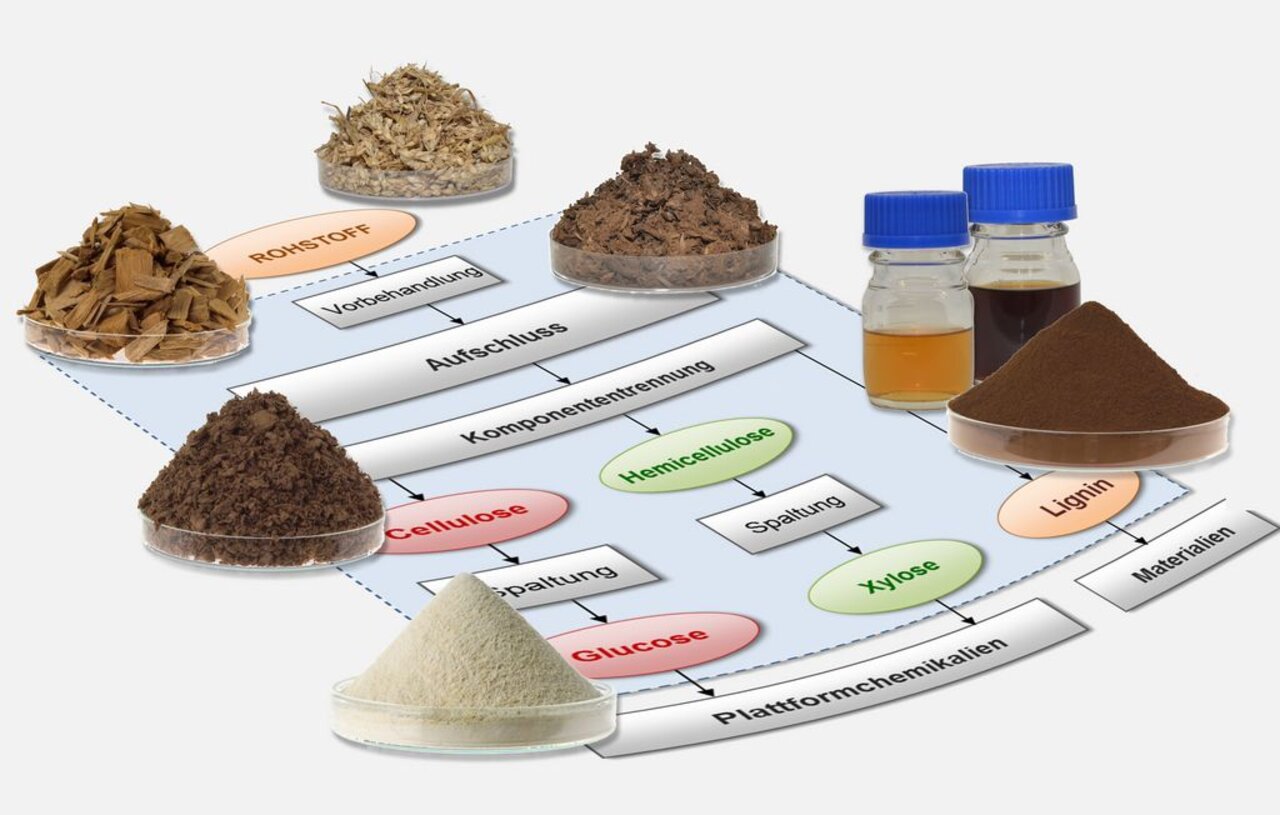Project
Material uses for lignocellulosic raw materials and residues

Research, development and evaluation of sustainable uses of lignocellulosic materials and residues to provide scientifically based informations.
Sustainable and economically feasible utilisation of wood and its components are to be pointed out, developed and evaluated. In order to provide political decision makers with scientifically-based results knowledge at the interface between science and policy has to be consolidated and supplemented by our own research.
Background and Objective
For the shift from an oil and gas based economy to a bioeconomy the use of lignocellulosic raw materials (especially wood, forestry and wood residues) play a key role. More than 90 percent of these raw materials are polysaccharides and lignin which can be used for the production of pulp and paper, but also for the production of new materials such as functional materials, nanocomposites and chemical intermediates. Our approach follows the entire process chain to include the efficient selection and processing of raw materials as well as selective, economical and sustainable processes for bioproduct debelopment and characterization. A permanent task is to develop basic knowledge of new processes and to link complex sub-steps to a coherent process, as well as to generate transfer knowledge from science to application. In the field of sustainable material use of lignocellulosic raw materials and residues, scientific expertise which can be called up at any time is combined with the ability for continous development of long-term issues. Our work contributes to climate protection, and raw material supply. Additionally innovative technologies will be evaluated, especially with regard to utilisation cascades and sustainability.
Approach
- Analysis of lignocellulosic raw materials and residues
- Development of additional biomass sources (landscape wood, imports, biomass of recultivation
areas) - Analysis and evaluation of traditional and development of new pulping and conversion processes,
as well as methods for the use of fibers and biopolymers - Adapting the methods to needs of bio-based economy
- Adaptation of methods to follow-up processes
- Evaluation and optimization of pulping methods for lignocellulosic raw materials and residues in terms of raw material efficiency, catalyst use, product quality and batch conformity
- Evaluation of innovative sustainable technologies
- Generation of transfer knowledge from science to application
Thünen-Contact

Involved Thünen-Partners
Duration
4.2018 - 12.2020
More Information
Project status:
finished







